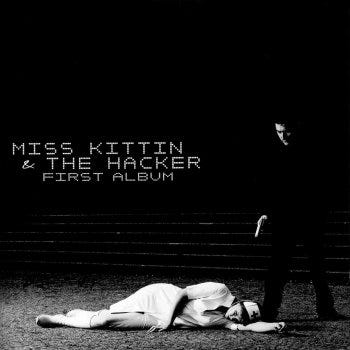Electroclash: Overview
At the intersection of house, pop, synthpop, DIY, and a Brett Easton Ellis novel, for our first post, we should have started with an easier genre to define
Peaches performed in Toronto at a small venue in 2001 or 2002. It was raw, visceral, energetic, and just plain fucking fun. There was a moment when she spat fake blood and half chewed Timbits over the crowd. It was fantastic. From the look of the crowd, not many people knew what was going on, and not many knew what to call what she was doing, or how to process it. It was something familiar yet new: a blend of synth sounds, the irreverence of pop music, the recognizable kick of the drum machine, and the disillusionment of the bling of mainstream pop culture.
Peaches straddles the line between what became known as Electroclash, and what would become Electropop (more familiar acts like Robyn, and Ke$ha, pop music infused with synths and more of a house backbeat). But where Electropop has a mainstream appeal, and a certain radio-friendliness to it, Electroclash was - well, trashy. We don’t know if this helps, but Electroclash is to Electropop as the Sex Pistols are to Blink 182.
There aren’t a lot of Electroclash acts to point to; rather, a handful of songs that really capture what is going on. But here’s what they have in common, and what sets them apart from other genres.
Electroclash took the Paris Hilton lifestyle, the plasticity of new Hollywood, the glitz and vapidity of new money and fame for fame’s sake, and essentially pantsed it. Steeped in skepticism and cynicism, and heavily laced with some combination of disdain, detachment or irony, it’s not always clear whether the artists wanted to be in the world they despised, despised the world they were in, or were just throwing a tantrum and tearing apart a world to which they could never belong. Or maybe it was all of the above. It’s hard to take the genre seriously, but it’s just as hard to look away.
Vocals in Electroclash tend to be far away, bored, dark. The entire genre is a queering of mainstream pop music and pop infatuations, and so it is no wonder that many of the acts associated with the sound were themselves queer artists: Peaches, Tiga, Chicks on Speed, Fischerspooner. (Is it any wonder these artists could so easily call out the ridiculous camera-ready candy faux queerness of the likes of Paris and Nicole?) While it wasn’t evident in 2001, the ripples of Electroclash can be felt across genres today. It definitely created a lot of space for queer artists to just fuck around; it also renewed artists’ licenses to unmask faux class through a lens of vulgarity. This music wasn’t taking anything too seriously; it had a punk and DIY sensibility, but with 808s instead of electric guitars. And while it wasn’t always punk in its sound—though it had its moments—it was disaffected, a counter-culture moment in its own right…but more easily and quickly swallowed up by mainstream culture than punk was.
In the end, though, it is perhaps Electroclash’s direct response to the cultural call of the times that makes it somewhat difficult (if not impossible) to remove the function of “time” from the equation that defines what the genre is (or isn’t). And why we struggle to be convinced whether there is, or can be, a rebirth of the genre; and whether that trashy, polluted river can ever be stepped in twice.
(All songs below are snippets. Full tracks can be listened to in Spotify.)
Key Album: First Album by Miss Kittin & The Hacker

The seminal album (and one of the most enduring figures of the sound) was probably Miss Kittin & the Hacker’s “First Album”.
Key song from the album: Frank Sinatra
Three Key Songs
Tasting Notes
Synth-based, 808s and 909s as drum machines
Often a dystopian reflection of celebrity / popular culture
Often trashy, in a deliberate way - punk aesthetic without the punk sound
For the rest of the week, we will suggest a few more key artists and albums, and round off the week with an Electroclash playlist to get your weekend started.
Notes
This is our first post, so it is worth mentioning our credentials, or lack thereof. We are not specialists in anything we will be writing about. Ultimately, we are enthusiastically curious and attentive consumers of stuff, looking for an excuse to dig deeper into it all, and excited to share what we find with others. We’ll get (lots of) things wrong, and we welcome constructive discussions on why Le Tigre should be considered Electroclash (we don’t think they should be) or why Peaches should not have made the list (she definitely should have, and we are unanimous in this).
So please, add comments, song suggestions for our playlists, general suggestions for the newsletter. Email us with requests of things to cover and we will do our best. Or worst. Either way.


